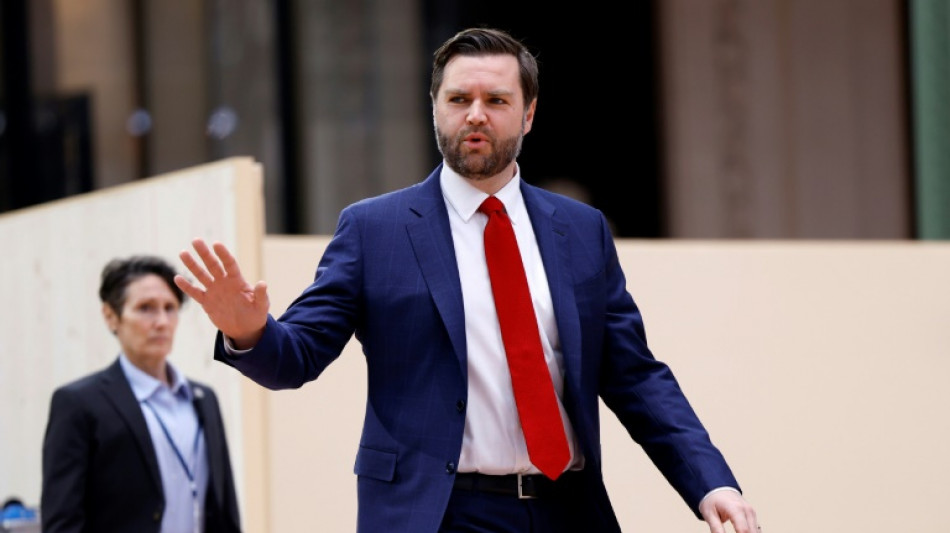
-
 Ireland eye unlikely Six Nations title against uncertain Italy
Ireland eye unlikely Six Nations title against uncertain Italy
-
Duterte's first ICC appearance set for Friday

-
 From oil spills to new species: how tech reveals the ocean
From oil spills to new species: how tech reveals the ocean
-
Curry bags record 4,000th three-pointer as Warriors rout Kings

-
 Hong Kong museum puts Picasso in cross-cultural dialogue
Hong Kong museum puts Picasso in cross-cultural dialogue
-
Alcaraz three-peat bid on track as Cerundolo downed

-
 Chinese, Iranian, Russian diplomats meet for nuclear talks
Chinese, Iranian, Russian diplomats meet for nuclear talks
-
England's Harry Brook banned from IPL for two years

-
 Curry bags record 4,000th three-pointer as Warriors face Kings
Curry bags record 4,000th three-pointer as Warriors face Kings
-
Former sex worker records Tokyo's red-light history
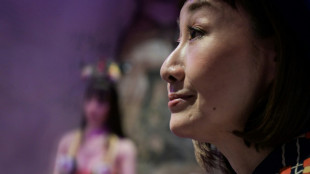
-
 Australians welcome departure of baby wombat grabber
Australians welcome departure of baby wombat grabber
-
Nepal community efforts revive red panda population

-
 Norris fastest in first Australian GP practice, Hamilton 12th
Norris fastest in first Australian GP practice, Hamilton 12th
-
Doncic drops 45 but Lakers pounded in Bucks loss

-
 Most Asian markets rise on hopes for bill to avert US shutdown
Most Asian markets rise on hopes for bill to avert US shutdown
-
ICC arrest, impeachment leave Duterte clan's political future in doubt

-
 China deports Japanese tourists over Great Wall buttocks pic: reports
China deports Japanese tourists over Great Wall buttocks pic: reports
-
Swiatek to face Andreeva, Sabalenka meets Keys in Indian Wells semi-finals

-
 Messi scores off the bench as Miami progress in Jamaica
Messi scores off the bench as Miami progress in Jamaica
-
War of words: Myanmar migrants face disinformation in Thailand

-
 France eye 'supreme objective' of Six Nations as Scotland visit
France eye 'supreme objective' of Six Nations as Scotland visit
-
Barca face Atletico rematch after defeat sparked unbeaten streak

-
 Man City in Brighton test as Arsenal face Chelsea clash
Man City in Brighton test as Arsenal face Chelsea clash
-
Marseille face up to gulf separating them from PSG in France

-
 England's Six Nations ambitions on the line against Wales
England's Six Nations ambitions on the line against Wales
-
Take 'precautionary approach' on deep-sea mining: top official tells AFP
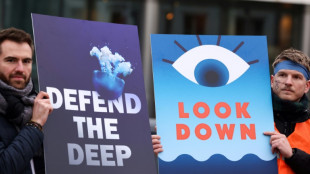
-
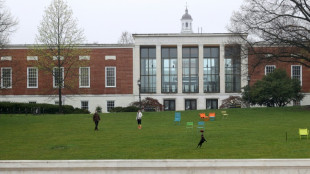 Renowned US health research hub Johns Hopkins to slash 2,000 jobs
Renowned US health research hub Johns Hopkins to slash 2,000 jobs
-
Russian teen Andreeva focused on the job as WTA ranking rises

-
 McIlroy tight-lipped about apologetic heckler incident
McIlroy tight-lipped about apologetic heckler incident
-
Panama 'firm' on canal as US reportedly weighs options

-
 Four-song EP by late singer Faithfull to be released in April
Four-song EP by late singer Faithfull to be released in April
-
You're kidding! Prince William reveals Aston Villa superstitions

-
 Villegas, Spaun and Glover share Players lead, McIlroy one back
Villegas, Spaun and Glover share Players lead, McIlroy one back
-
Top US university says ending 2,000 positions due to Trump cuts
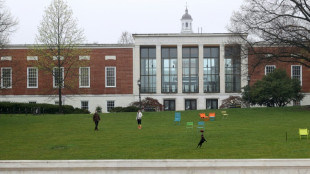
-
 Rangers down angry Mourinho's Fenerbahce to reach Europa League quarters
Rangers down angry Mourinho's Fenerbahce to reach Europa League quarters
-
Brazil top court to consider Bolsonaro 'coup' case on March 25

-
 Amorim 'proud' of Dorgu's honesty to overturn Man Utd penalty
Amorim 'proud' of Dorgu's honesty to overturn Man Utd penalty
-
Medvedev outlasts Fils to reach Indian Wells semi-finals

-
 Fernandes sends Man Utd into Europa League quarters, Spurs advance
Fernandes sends Man Utd into Europa League quarters, Spurs advance
-
Rangers down Mourinho's Fenerbahce to reach Europa League quarters

-
 Odobert double sends Spurs into Europa League quarter-finals
Odobert double sends Spurs into Europa League quarter-finals
-
Fernandes hat-trick fires Man Utd into Europa League quarters

-
 Duterte's first ICC appearance set for Friday: court
Duterte's first ICC appearance set for Friday: court
-
Stock markets tumble as Trump targets booze

-
 Home is where hurt is as Duplantis misses out on new world record
Home is where hurt is as Duplantis misses out on new world record
-
Wales' Anscombe still eyeing 2027 World Cup despite Gatland doubts

-
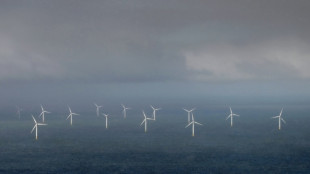 Sea levels rise by 'unexpected' amount in 2024: NASA
Sea levels rise by 'unexpected' amount in 2024: NASA
-
Trump tariff threat leaves sour taste for European drinks producers

-
 Defending champ Swiatek tops Zheng to reach Indian Wells semi-finals
Defending champ Swiatek tops Zheng to reach Indian Wells semi-finals
-
Ex-NOAA chief: Trump firings put lives, jobs, and science in jeopardy
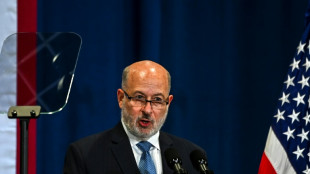

JD Vance puts Europe, China on notice at AI summit
US Vice President JD Vance on Tuesday warned European allies against over-regulating the US-dominated artificial intelligence sector and China against using the technology to tighten its grip on citizens and allies.
Speaking at a global AI summit aimed at finding common ground on the emergence of a technology set to shake up global business and society, Vance struck a more confrontational tone than other leaders in the room.
"Excessive regulation... could kill a transformative sector just as it's taking off," Vance told global leaders and tech industry chiefs in the opulent surroundings of the French capital's Grand Palais.
"We need international regulatory regimes that fosters the creation of AI technology rather than strangles it," he added, calling on Europe to show "optimism rather than trepidation".
India's Prime Minister Narendra Modi, co-hosting with French President Emmanuel Macron, had minutes earlier called for "collective, global efforts to establish governance and standards that uphold our shared values, address risks and build trust".
Future AI would need to be "free from biases" and "address concerns related to cybersecurity, disinformation and deepfakes" to benefit all, he added.
Vance, by contrast, said it was not up to national capitals to "prevent a grown man or woman from accessing an opinion that the government thinks is misinformation".
The US vice president also took a thinly veiled shot at China, saying "authoritarian regimes" were looking to use AI for increased control of citizens at home and abroad.
"Partnering with them means chaining your nation to an authoritarian master that seeks to infiltrate, dig in and seize your information infrastructure," Vance said.
Chinese startup DeepSeek rattled the AI sector last month by unveiling a sophisticated chatbot that it claims was developed on a relatively low budget. A growing number of countries have taken steps to block the app from government devices over security concerns.
Vance also pointed to "cheap tech... heavily subsidised and exported by authoritarian regimes", referring to surveillance cameras and 5G mobile internet equipment widely sold abroad by China.
- Hundreds of billions lined up -
President Donald Trump's deputy left the venue immediately after his speech as other speakers including European Commission chief Ursula von der Leyen and Google boss Sundar Pichai took the stage.
Von der Leyen said Brussels would push to mobilise 200 billion euros ($206 billion) for AI investments in Europe, with 50 billion euros to come from the EU's budget and the rest from "providers, investors and industry".
Following Macron's trumpeting Monday of 109 billion euros of investment into French AI projects and the $500-billion US "Stargate" programme led by developer OpenAI, the vast figure underscored the resources needed to compete on catching the next technological wave.
Overnight, the Wall Street Journal had reported a near-$100 billion bid to buy ChatGPT maker OpenAI from a consortium headed by Elon Musk.
If successful, the deal would compound the tech influence of the world's richest man, already boss of X, Tesla, SpaceX and his own AI developer xAI as well as a Trump confidant.
Sam Altman, the OpenAI chief set to speak in Paris later Tuesday, responded to the reported offer with a dry "no thank you" on X.
Vance did not comment directly on the prospective deal.
But while he said the Trump administration would "ensure that American AI technology continues to be the gold standard worldwide", he also took aim at heavyweight tech "incumbents" who he said pushed for regulation that could strangle emerging challengers.
Rather than only benefiting big players, "we believe, and we will fight for policies that ensure, that AI is going to make our workers more productive", Vance said.
"We expect that they will reap the rewards with higher wages, better benefits, and safer and more prosperous communities," he added.
For now, AI is mostly replacing humans in clerical jobs disproportionately held by women, International Labour Organization head Gilbert Houngbo said on Monday.
That risks widening the gender pay gap even though more jobs are being created than destroyed by AI on current evidence, he added.
- 'Existential risk' -
Suspense remained as the AI summit drew to a close Tuesday on the language and signatories of a final statement.
Media reports suggest that neither Britain nor the United States -- two leading countries for AI development -- will sign a planned joint declaration as it stands.
Outside observers criticised an alleged leaked draft of the joint statement for failing to mention AI's suspected threat to humanity's future as a species.
The supposed draft "fails to even mention these risks" said Max Tegmark, head of the US-based Future of Life Institute, which has warned of AI's "existential risk".
A.Gasser--BTB
